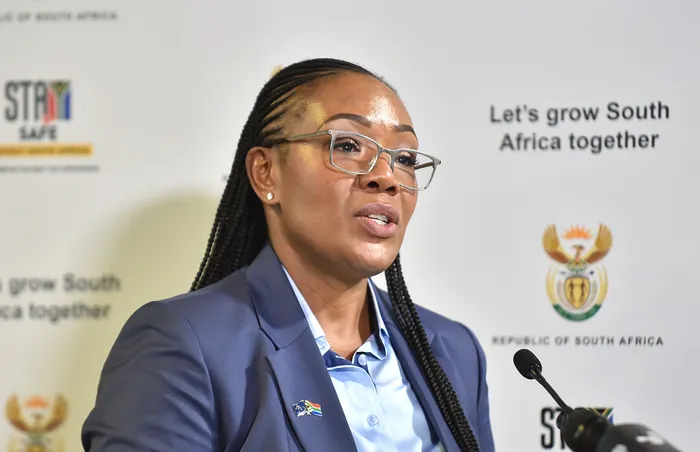Auditor-General warns: Accountability crisis fuels corruption in South Africa

Auditor-General Tsakani Maluleke.
Image: Independent Newspapers Archives
The Auditor-General (AG) Tsakani Maluleke says lack of accountability has normalised corruption as part of life in South Africa, and the country has regressed as a result.
The AG was speaking at a three-day National Combating Corruption Summit hosted by the University of Johannesburg on Thursday.
The conference brings together leaders from various sectors to discuss strategies and collaborate on solutions to fight corruption
This comes as South Africa scored 41 out of 100 on Transparency International’s 2024 Corruption Perceptions Index (CPI), the same as its 2023 score. This indicates persistent public sector corruption, as a score below 50 is considered serious. The CPI assesses countries on a scale where 0 is highly corrupt and 100 is very clean, with South Africa ranking 82nd out of 180 countries in the 2024 report.
Maluleke said corruption in the country has far-reaching implications, limiting investment appetite and further increasing unemployment. She said the situation limited economic growth, which in turn affects the country’s ability to create jobs.
According to Maluleke, the recent developments, including state capture and many other reports, including those in the media, show that corruption has become a way of life in South Africa.
"This... must worry each and every one of us, whether we have auditors or not. Whether we serve in the public sector or the private sector," she said.
Maluleke added that corruption also destabilises society and endangers the rule of law.
"It undermines the institutions and values of our democracy. And the reality is that poor people suffer more. Because public policies and public resources are meant to benefit them. They depend on the government for housing, healthcare, education and security. They are vulnerable to corruption as it delays infrastructure development and maintenance, poor building quality and layers of additional costs are all consequences of corruption," she said.
Maluleke said her office, as an oversight body, enforces accountability to public officials but reports and recommendations have not been taken seriously.
"Although commitments were made as people responded to our audit findings, the implementation of those recommendations was too slow," she said, adding that this has eroded public trust in the government.
She said that the loss of savings that emanated from the collapse of Steinhoff and Tongaat Hulett, among others, are a clear indication that corruption and its impact are also not limited to the public sector.
Maluleke said the country needs a collective strength of State institutions in order to deal with corruption, adding that institutions must have the ability to prevent, protect, and correct the weaknesses that elevate risks.
"Public institutions, acting as a collective, must have the ability to dictate wrongdoing, to investigate swiftly and effectively, and effect consequences consistently and transparently," she said.
Meanwhile, Minister of Public Works and Infrastructure, Dean Macpherson, who was also a keynote speaker, announced that 400 officials will be subjected to lifestyle auditing this year.
He explained that this would include officials across procurement in ICT finance and other projects.
Macpherson said this investigation started after he took office in 2022.
"And 48 senior managers have been completed. This year, we are expanding that dramatically to cover 400 high-risk officials across procurement in ITC finance and other projects. These audits are not run by insiders but are conducted independently in partnership with the Special Investigating Unit (SIU)," he said, adding that the first batch of 69 cases is already under review.
Macpherson also said the department has launched a "ghost employee" verification, saying there are names on the payroll and they do not correspond with real people.
"And every single person, including my office, have to verify themselves physically or virtually."
Cape Times